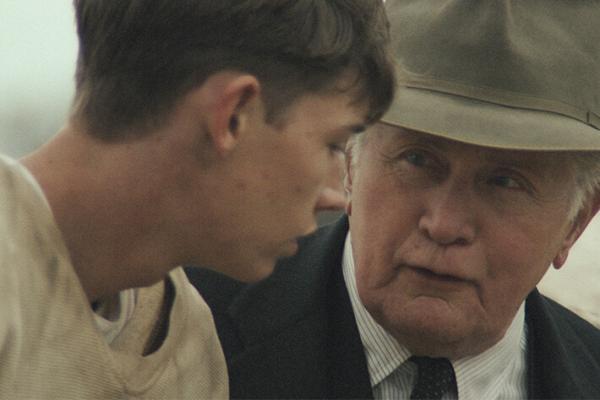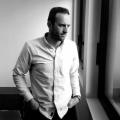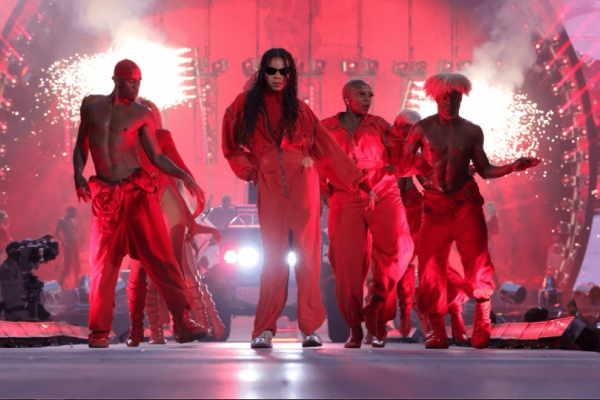When my grandfather was a kid, he would often skip school to catch rabbit for family dinner. It was South Carolina during the Great Depression. While he was still alive, he asked me to never write about how he would sometimes find himself sitting at the kitchen table, waiting for his mother to serve breakfast. She busied herself until he finally left for school on an empty stomach. He feared that some might get the wrong idea that he had anything less than an exceptional mother. I had never thought about how different things might have gone for my grandfather until watching 12 Mighty Orphans, a true story of a football team made up of orphans who make it to the Texas state championship, all set in the thick of the Great Depression.
The children at the Masonic Home and School are not young. They are not hopeful of being chosen by an adoring adoptive family, and they are regularly reminded that any hope for a future that exceeds these circumstances is laughable. Until it isn’t.
At the beginning of the film, which released earlier in June, the Masonic Home’s new football coach Rusty Russell, played by Luke Wilson, is praised by the orphanage’s on-site doctor Doc Hall (Martin Sheen) for his optimism. But both men offer the boys more than just passive optimism; they disrupt the boys’ desperate circumstances with intentional efforts and embodied, active hope. When one instructor tries to inflict violence on the children, they put their bodies in the way. When instructors tell the children the only future they face is working in factories or mines, these two see another future for them — one that others cannot yet see — and they take active steps to set it in motion.
Sheer optimism (mixed with prayer) isn’t enough to overcome their desperate circumstances. These children need people to actively come alongside them and offer another future.
“One of the lessons that all Christians must deepen in their lives,” theologian Willie Jennings once wrote, “is that hope is always active, never passive.”
That Jennings line came to my mind while preparing for my interview with Martin Sheen, who, with 66 arrests and 260 acting roles to his name, is nearly as prolific in his nonviolent civil disobedience as he is for his filmography.
This conversation has been edited for length and clarity.
Ryan J. Pemberton, Sojourners: Hope in the face of despair is a major theme of this film. Your character remains hopeful for a better future for these children, and he takes steps to live into that hope. Can you talk about how you imagine active hope in your own life?
Martin Sheen: It’s a constant projected energy that I can’t imagine myself without. I’ve always been a hopeful, optimistic person. I was very fortunate; I grew up in a very loving, huge family. Both of my parents were immigrants, and we were Catholics. There were 10 of us. My mother actually had 12 pregnancies, 10 of us survived. There were nine boys, one girl. I was the seventh son.
We all had to pitch in, from a very young age. My older brothers were caddying at a private club in Ohio. I was 9 years old and they said, “Well, it’s time for you to pitch in.” So I started caddying, early spring to late fall, every year until I left home in 1959, and I tried to help lessen the financial burden my father and my mother had to carry. My father was a factory worker his whole life. It was very tight, but I wouldn’t have had it any other way.
I learned that we serve ourselves best when we serve others first. That was just the fundamental motto of the family, and that’s basic to community. And that works on every conceivable level, whether it’s on a sports team or in a family or in government or any kind of public service. You have to have a sense of service. And you can’t really have a sense of service without a sense of hope. They go hand in hand.
Most of my life I have struggled to unite the will of the spirit to the work of the flesh, and there you are whole. And I think everybody would agree with that even though they may not articulate it that way.
We have to find a way to feel whole and human, and we must be in touch with our humanity. And when we are on that level, we project hope. You can see in people when they are … I don’t even know the term for not being hopeful. I don’t want to say “despair” or “hopeless,” because as long as we’re alive, we’re hopeful. You have to have hope if you’re thinking of tomorrow and you’re planning on it.
In one very moving scene in the film, one of the players is told, “Without hope, fear and anger will continue to dominate through violence.” I found that to be a timely word. How do you feel about the potential to rally Americans behind our own pressing issues, given our schisms and repeated violence?
I think we have to come to grips with the lie, the deep lie, in our throat. I don’t think there’s anything more urgent as a nation than to clear our throats of this horrible lie. And those who perpetrate it are committing a colossal sin of usage, and most innocent people who have fallen for this lie are victims of this sense of fear and anger and violence. It is violent to lie. It is violent to bully people. It is violent to rob them of compassion and love.
This one individual and the people around him created his lie that is stuck in our throat, in our conscience, and we have to be man enough to face up to it, and confess it, and identify it.
This man is only concerned with one individual, and that’s him — and his fortune. He brought out the worst in us. And he perpetrated this lie. He must be manly enough to step out and say, “I made a huge mistake before God and country, and I apologize. I’m sorry. Forgive me.” That’s the only way it’s going to work.
So truth-telling is the response that we need?
Either we tell the truth or we live a lie — and it’s killing us. It’s destroying our spirit. It’s so un-American.
Going back to the start of your career, I have read that Terrence Malick influenced your faith in important ways. Can you share about that impact, and how it’s stayed with you until today?
Very much so. Terry is an old and dear friend. We came together on a film called Badlands in 1972, which was released in 1974, and we remained friends. We kind of lost track of each other [but] in 1981 I was in Paris doing a film and we ran into each other. And for the next few months, because my family wasn’t able to join me at that time, I spent every available moment with him, and he became like a mentor.
I talked about this in a book I wrote with my son, Emilio, called Along the Way, a father-son memoir, and I talked about Terry, who saw some need in me, and he became a mentor, specifically about the road to acknowledging spirituality.
He gave me a number of books to read along the way, and we would discuss things philosophical, and we would go to services. I had been raised Catholic but I had pretty much left the faith, for just negligence, more than anything. And he had inspired, he had re-ignited really this burning desire to get healed, to become myself. And eventually it led me back to Catholicism, and I’ve remained a Catholic since then.
I wasn’t interested in the piety of it. I was interested in the honesty of it. I needed to become my real self, which is what all of us are meant to be. For me, I felt more comfortable in Catholicism because I loved the sacraments — confession and the Eucharist and the Mass were of utmost importance to me. I reunited with that, and I found myself. I’m not saying my life was any easier. On the contrary! But I became happy. I loved being alive. I loved being active. And I loved the energy, the focus that my life had taken on.
And it was, in large measure, in service to others. As I said earlier, we serve ourselves best when we serve others first. And I began to do that. And that’s where I got the greatest sense of joy and fulfillment. And that is a projection of hope.
Got something to say about what you're reading? We value your feedback!







